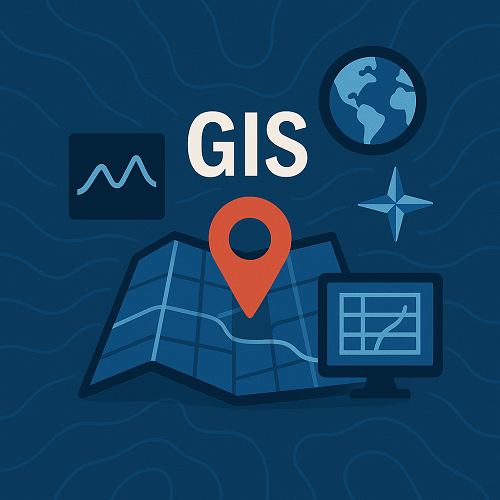The Top 10 GIS Applications that are Revolutionizing Industries Across the Globe
Geographic Information Systems (GIS) have become an indispensable part of today’s world due to their ability to visualize, analyze and interpret data spatially. The advent of GIS technology has revolutionized many industries, including disaster management, transportation, and agriculture, among others. This article reviews the top 10 GIS applications that are transforming industries across the globe.
1. Disaster Management: GIS technology is used to manage disasters effectively. Disaster management teams use GIS to locate the affected areas, assess the damage caused and predict the impact of future disasters.
2. Transportation: The application of GIS in transportation has revolutionized the way people travel. GIS technology is now used to monitor traffic patterns, create efficient routes, and locate destinations.
3. Agriculture: The agriculture industry has benefited significantly from GIS technology. GIS is used to map and analyze soil types, creating optimal growing conditions for crops, and even predicting future crop yields.
4. Forestry: GIS has been applied in forestry operations to manage natural resources, plan logging activities, and monitor forest changes over time. GIS technology is used to create detailed maps of forests, which help in the conservation of natural resources.
5. Utilities: GIS technology is used in utilities to manage electricity, gas, and water distribution systems. GIS technology helps utilities manage their networks, locate potential outages, and even assist in emergency response efforts.
6. Environmental monitoring: GIS technology is used for environmental monitoring, which involves tracking changes in the environment, such as soil erosion, deforestation, and climate change. GIS technology is used to map and analyze these changes so that effective measures can be taken.
7. Real estate: GIS technology has revolutionized the real estate sector by providing detailed information on property locations, land values, and other critical data. GIS technology helps realtors and developers identify potential development sites.
8. Mining: The mining industry has also embraced GIS technology to improve efficiency, safety, and profitability. GIS technology is used to map mine sites, track mineral deposits, and even monitor water pollution.
9. Health: GIS technology is now being applied in the health sector to map disease outbreaks, track the spread of viruses, and even predict the emergence of new diseases. GIS technology helps health workers respond quickly to health emergencies.
10. Education: GIS technology is now being applied in education to help students learn more about geography and environmental studies. GIS technology enhances traditional learning methods, allowing students to visualize mathematical and scientific concepts.
In conclusion, GIS technology is transforming industries across the globe by providing new insights into spatial data. Through the application of GIS technology, industries are becoming more efficient, safe, and profitable. As this technology continues to evolve, we can expect even more innovative solutions to emerge.
FAQs
1. What is GIS Technology?
GIS technology refers to the ability to visualize, analyze and interpret data spatially. This technology has revolutionized many industries.
2. How is GIS technology applied in transportation?
GIS technology is used to monitor traffic patterns, create efficient routes, and locate destinations.
3. What are some advantages of GIS technology in agriculture?
GIS technology helps to map and analyze soil types, creating optimal growing conditions for crops and predicting future crop yields.
4. How is GIS technology helping in emergency response efforts?
GIS technology is used to locate affected areas, assess damage caused and predict the impact of future disasters.
5. Can GIS technology be used in education?
Yes, GIS technology is being used in education to allow students to learn more about geography and environmental studies.
